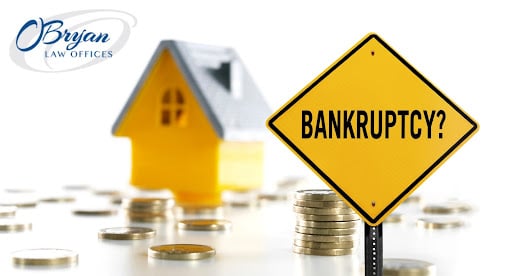Mistakes That Can Lead to Bankruptcy and Bankruptcy Mistakes to Avoid

What to Do Before Filing Bankruptcy

The actions an individual takes leading up to filing bankruptcy can drastically affect their ability to get a “fresh start.” By avoiding these bankruptcy mistakes, one can travel successfully through the bankruptcy process without any bumps in the road. Bankruptcy preparation involves not only avoiding mistakes during bankruptcy but also understanding the mistakes that can lead to bankruptcy. When you identify these mistakes, you can avoid them in the future and remain debt-free.
At O’Bryan Law Offices, our Louisville bankruptcy attorneys have helped countless families and individuals solve their financial problems. We offer credit counseling in Louisville, KY, debt counseling, debt consolidation, and of course, bankruptcy filings. If you find yourself struggling with debt, a low credit score, or other financial troubles, we’re here for you. To schedule your free consultation with us, please call 502-339-0222 today.
What Not to Do Before Filing Bankruptcy

Using Your Credit Card Before Filing for Bankruptcy
Don’t use your credit cards once you have made your decision to file bankruptcy. Charges for luxury goods and services owed to a single creditor, totaling more than $500.00 within 90 days of filing, are presumed nondischargeable and may be found to be due and owing. Cash advances totaling more than $750.00 for all creditors within 70 days of filing are also presumed nondischargeable and may be found to be due and owing. Don’t jeopardize your “fresh start” by running up your credit cards.
Paying a Family Member Back Before Filing for Bankruptcy
You cannot treat your family member any better than you would an ordinary creditor with regard to repaying debts. In fact, a bankruptcy trustee can reclaim any amount repaid to a family member within one year of filing bankruptcy, although amounts under $2,000 are generally too small to bother with.
Dipping Into A 401K Plan To Repay Creditors Before Filing
Retirement accounts are generally protected. You can eliminate your debt and usually keep whatever you have in a retirement account, free and clear. Many individuals drain their retirement accounts in a futile attempt to pay down credit card debt.
Transferring Property For Less Than What It Is Worth Before Filing
A bankruptcy trustee can undo a transfer of property that previously belonged to you. This could occur if the transfer was made within four years of the filing of the bankruptcy with the intent to hinder, delay or defraud a creditor or simply if a fair price was not received.
Borrowing From A Second Mortgage To Pay Off Credit Card Debt Before Filing Bankruptcy
Don’t take a loan against your real estate in an effort to reduce the equity. You can often file for bankruptcy and not lose this valuable asset. If you take out a second mortgage to pay credit card debt, you may be putting your house at risk.
Failing To Show Up For Court
Do not assume that you can avoid a lawsuit simply because you’ve decided to file bankruptcy. A collection case continues until your bankruptcy case is actually filed, which only occurs after you have completed the following requirements:
- All the fees are paid.
- You have met with us and provided all the necessary information for preparing the 40 pages of bankruptcy forms.
- You have reviewed, signed, and returned the forms to us for filing with the Bankruptcy Court.
- You have completed the required debt counseling program (by telephone or Internet) which we coordinate for you.
It is never a good idea to try to avoid your state or federal court process. This will not help your bankruptcy case, especially if you have a collection case pending.
Failing To Tell Your Bankruptcy Attorney The Truth
An attorney can only provide advice based upon information provided by the client. Failure to notify your attorney about your assets can lead to the loss of those assets, denial of your bankruptcy case, fines, imprisonment, or all of the above.
Mistakes That Lead to Bankruptcy

Sometimes, it’s difficult to determine whether or not certain financial maneuvers are a good idea. Luckily, working with O’Bryan Law Offices can help you move forward with confidence in your decisions. We will advise you on whether or not certain decisions are in your best interest and keep you up to date on what you need to do to avoid bankruptcy, if that’s your goal. To schedule a free case evaluation and establish an attorney-client relationship with us, please contact one of our offices today.
Avoid Bankruptcy Mistakes with a Consumer Bankruptcy Lawyer
The actions an individual takes leading up to filing bankruptcy can drastically affect his ability to get a “fresh start.” By avoiding these seven bankruptcy mistakes, one can travel successfully through the bankruptcy process without any bumps in the road.
The biggest bankruptcy mistake one can make is failing to contact an experienced bankruptcy attorney and trying to file for bankruptcy alone. O’Bryan Law is a family-owned bankruptcy law firm serving Kentucky and Indiana. We have years of experience in this field. Let us help you avoid bankruptcy mistakes by giving us a call at 502-339-0222 today.
We are a debt relief agency. We help people file for bankruptcy relief under the Bankruptcy Code. Below, we list the various types of bankruptcy proceedings that we handle at our law firm:






